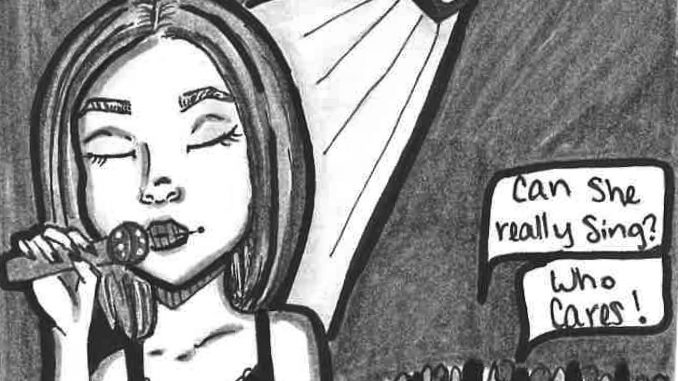
Staff Editorial:
With all his fortune, fame and influence, one aspect of Steven Tyler remains unavoidable… he’s butt ugly.
Technology advances faster with each passing day and is infiltrating more industries than ever before. The music industry is no exception. The advent of Auto-Tune and other computer-aided pitch correction software has enabled talent agencies to look for beautiful people and correct any lack of talent in post-production.
Just as some magazines and retailers are focusing on doing away with heavily Photoshopped beauty advertisements, it’s time we take a hard look at the way we value the fantasy of “perfect voices” over real talent.
Take artists like Alice Cooper or Gene Simmons for example. Neither of them was overly blessed in the looks department, but they both have incredible musical abilities. In the age of social media and smartphones, more often than not, a consumer has to enable audio playback, but the video starts as soon as it becomes visible.
Talent agencies, advertisers and record labels have switched their priorities to finding people who are visually appealing to draw in the consumers.
But what happens when that audio hits the consumer’s ears for the first time?
In years past, recording artists had little more than a microphone, band and the occasional backup singer. Each artist lived and died by their musical abilities. When you listened to a vinyl album or cassette tape and then went to a concert, barring any voice altering illness, the artist would sound the same in person as they did in the recording. Now, with artists like T-Pain and Ke$ha, the veritable king and queen of Auto-Tune, you never know what you’re going to hear when you see them perform in person, but you know it’s going to be vastly different. There are even artists like Adam Young of Owl City who can’t perform at all without their computer there to process the audio live.
All of this plays into a society that places so much weight on perfection that it would rather exalt an unrealistic portrayal of human talent than basking in the glory of our own inherent imperfections.
We, the Ranger staff, believe that artists should be respected for their God-given abilities rather than for some computer-generated fallacy that creates a standard that no natural human could ever attain.
It’s time to tune in to reality.

Leave a Reply